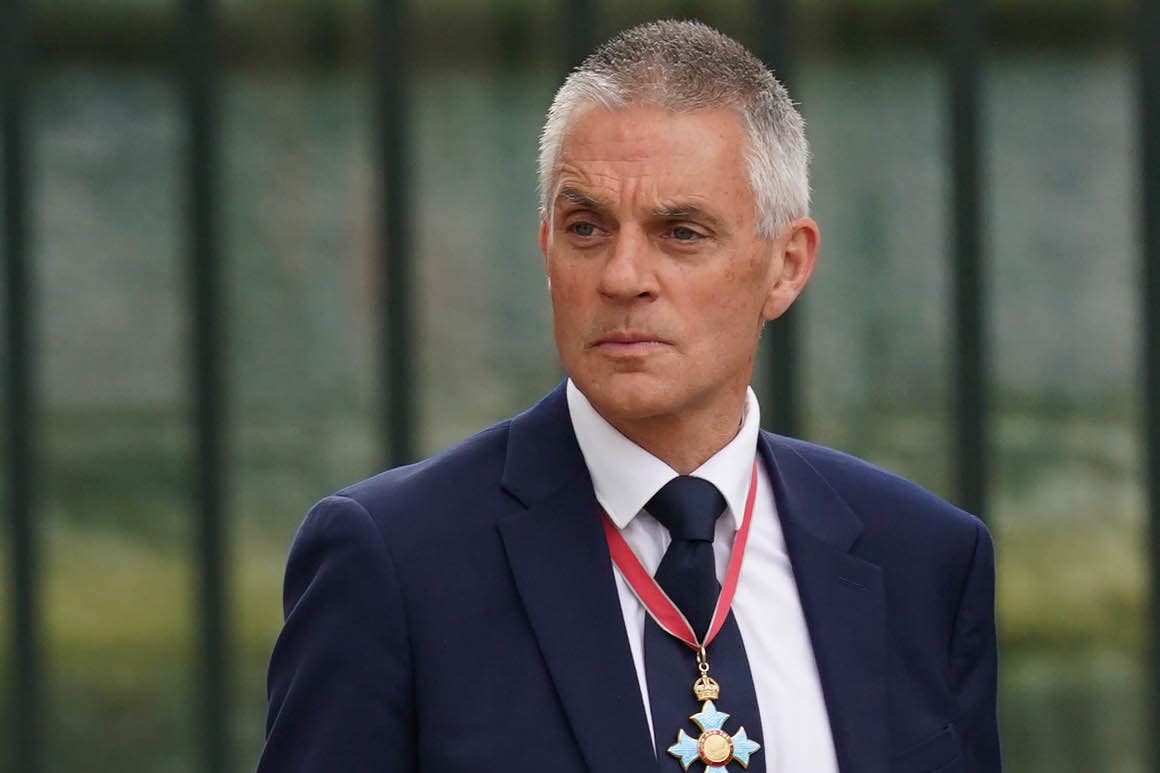BBC boss on Russell Brand’s Radio 2 exit: ‘We’re always going to have questions’
Tim Davie was the corporation’s director of audio when Brand left his Radio 2 show in 2008 after leaving a ‘lewd’ voicemail for Andrew Sachs.

Your support helps us to tell the story
From reproductive rights to climate change to Big Tech, The Independent is on the ground when the story is developing. Whether it's investigating the financials of Elon Musk's pro-Trump PAC or producing our latest documentary, 'The A Word', which shines a light on the American women fighting for reproductive rights, we know how important it is to parse out the facts from the messaging.
At such a critical moment in US history, we need reporters on the ground. Your donation allows us to keep sending journalists to speak to both sides of the story.
The Independent is trusted by Americans across the entire political spectrum. And unlike many other quality news outlets, we choose not to lock Americans out of our reporting and analysis with paywalls. We believe quality journalism should be available to everyone, paid for by those who can afford it.
Your support makes all the difference.BBC director general Tim Davie said a “rigorous piece of work” was conducted when Russell Brand left BBC Radio 2 but wonders if more could have been done.
Mr Davie was the corporation’s director of audio when Brand left his Radio 2 show in 2008 after he and guest Jonathan Ross left a “lewd” voicemail for Fawlty Towers actor Andrew Sachs – who died in 2016 – about his granddaughter.
Brand has been accused of rape, assault and emotional abuse between 2006 and 2013, when he was at the height of his fame and working for the broadcaster as well as Channel 4 and starring in Hollywood films, following a joint investigation by The Times, Sunday Times and Channel 4’s Dispatches.
Speaking during a session at the Royal Television Society (RTS) Cambridge Conference on Wednesday and reflecting on how the corporation handled the issue in 2008, Mr Davie said it did a “rigorous piece of work” which led to “significant departures”.
Asked if he does not regret that more was not done at the time, he said: “I always look back with hindsight, when you hear things coming out, and you go, ‘Could you have done more?’
“We’re always going to have questions.”
The BBC boss said he is “proud” of the culture at the corporation, adding: “We’re having, I think, profound conversations and we have been for years now in terms of saying, ‘Are we getting it right in terms of ensuring that (there are) no abuses of power, that people behave flawlessly in terms of respecting each other, kindness?’”
The broadcaster has launched an investigation into comedian and actor Brand’s time at the BBC and has removed content featuring him from its platforms.
Brand, who worked on BBC Radio 2 and BBC Radio 6 Music programmes from 2006 to 2008, has strongly denied the allegations.
Mr Davie said the claims are “very serious” and feels broadcasters cannot be “complacent” about how they approach such allegations.
“This is not an issue that can be just put down as wholly historic, if I’m honest”, he said.
“I think there’s an important, healthy dialogue to have around these deep imbalances of power.”
I always look back with hindsight, when you hear things coming out, and you go ‘Could you have done more?’ We’re always going to have questions
The BBC boss said there have been “deep problems with misogyny (and) abuse of power” and the way to tackle it is to be “utterly vigilant, be unaccepting of it and create a culture in which… there’s a trust that bringing information forward is treated very seriously”.
The BBC said the review into Brand’s time at the corporation will be led by its director of editorial complaints Peter Johnston, who is the former director of BBC Northern Ireland.
Mr Davie said during the RTS session he has not ruled out an external review, adding: “I think it’s the right approach and proportion at this point to get a serious internal review led by Peter Johnson, who is an excellent and senior leader with great experience in this area.”